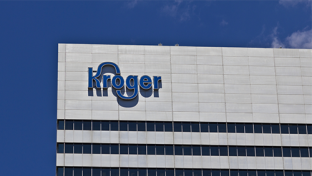Kroger Says FTC Is ‘Willfully Blind to the Realities of Current Grocery Competition’
The Kroger Co. and Albertsons Cos. did not mince words in their respective legal filings last week as they formally responded to the Federal Trade Commission's (FTC) challenge of their $24.6 billion proposed merger. While Kroger says the FTC is “distorting the competitive grocery landscape” it will face following the merger, Albertsons Cos. contends that the FTC’s complaint “entirely ignores the commercial realities of the fiercely competitive landscape” in which both grocers operate.
Albertsons Cos. goes on to detail the evolution of that grocery landscape in recent years, noting that it believes the FTC “handcrafted a narrowly defined set of ‘traditional supermarket’ competitors as one of the relevant product markets for the purposes of this litigation,” but fails to consider competition from larger retailers such as Walmart and Target, club retailers such as Costco Wholesale, specialty retailers including Trader Joe’s and Sprouts Farmers Market, and also omnichannel competitors like Amazon.
Going one step further, Kroger contends that the FTC is “maintaining its archaic fiction limiting grocery competitors to ‘supermarkets,’” and that the agency’s “view of the relevant market lacks any basis in the real world.”
Additionally, Kroger and Albertsons Cos. both responded to the FTC’s claims that their proposed divestiture of 413 stores to C&S Wholesale Grocers is “irrelevant and bound to fail.” Albertsons Cos. says the FTC fails to account for those stores that the grocers have already proposed to divest, as well as the possibility of additional divestments, that would preserve competition in many areas and address any competitive concerns as a result of the merger.
Kroger also notes that “C&S is not a mom-and-pop operation or a risky private equity venture; it is a sophisticated, well-capitalized company with deep industry experience — the eighth-largest privately held company in the United States with nearly $35 billion in annual revenue.”
Another topic broached by both grocers is that of the FTC’s view of the “union grocery labor” market. Albertsons Cos. says “this unprecedented product market completely ignores the labor market in which Respondents compete, which includes non-union as well as non-grocery retailers.” Albertsons also asserts that the FTC’s allegations regarding the impact of the merger on the union’s bargaining power takes negotiations with the unions out of context and ignores the fact that the merger could actually increase the union’s bargaining power.
These latest filings came after a hearing date of Aug. 26 was set by Judge Adrienne Nelson of the U.S. District Court for the District of Oregon regarding the FTC’s request for a preliminary injunction against the merger. The August hearing date will come exactly six months after the FTC filed suit to halt the merger and divestiture plan, claiming that the move "falls far short of mitigating the lost competition between Kroger and Albertsons" and would increase grocery prices for millions of Americans.
During Kroger’s Q4 and fiscal year 2023 earnings call on March 7, CEO Rodney McMullen said the company is “committed to defending the merger and litigation, because we believe this is the best outcome for America's families.” McMullen also noted the merger can't close while these legal actions are pending.
"While we were disappointed about the FTC's recent attempt to challenge our merger, we were not surprised, given the current political environment," he said. "Our track record in previous mergers is clear: Kroger lowered prices, invested in associates, improved the customer experience and deepened its connections with the communities we serve."
Nearly half a million associates of Cincinnati-based Kroger serve more than 11 million customers daily through a digital shopping experience and retail food stores under a variety of banner names. The company is No. 4 on The PG 100, Progressive Grocer’s 2023 list of the top food and consumables retailers in North America. Boise, Idaho based Albertsons operates 2,200-plus retail food and drug stores with 1,726 pharmacies, 401 associated fuel centers, 22 dedicated distribution centers and 19 manufacturing facilities. It's No. 9 on The PG 100. Keene, N.H.-based C&S services customers of all sizes, supplying more than 7,500 independent supermarkets, chain stores, military bases and institutions with 100,000-plus products, in addition to operating corporate stores. The company is No. 17 on The PG 100.







